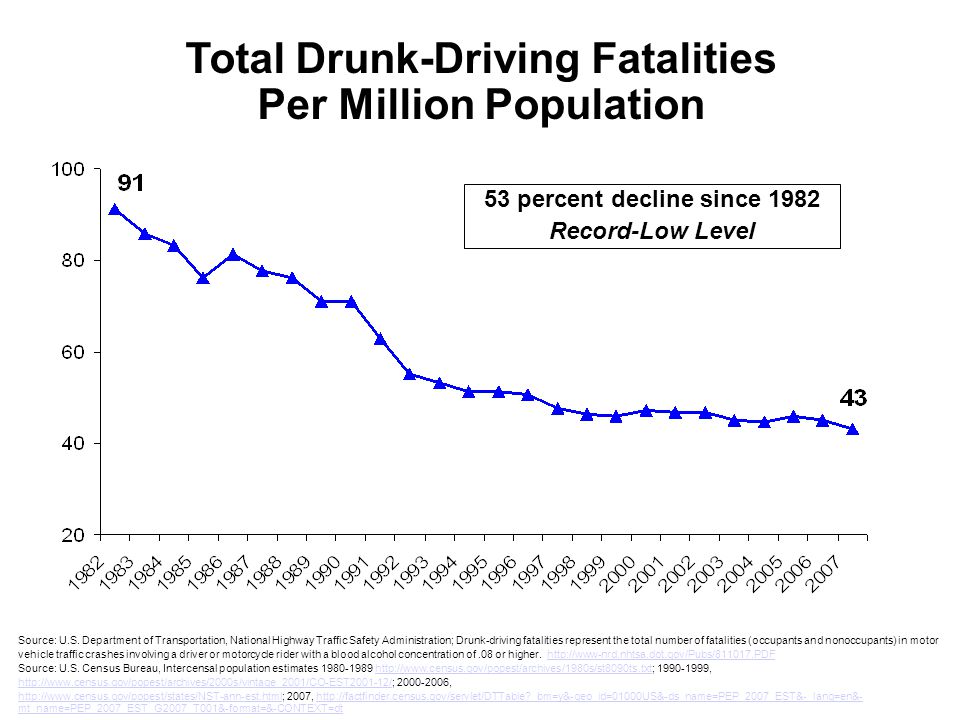HappyJoy
Platinum Member
- Apr 15, 2015
- 32,056
- 5,943
- 1,140
- Banned
- #61
And while there are more cars on the road than ever, drunk driving fatalities are down.
I am not talking drunk driving, I am talking about drinking a beer, or are you a 4 year old little girl?
Yeah, and common sense laws stopping people from having 'a beer' while driving appear to have lowered the number of drunk driving fatalities. Poor, bear, the law just won't allow it.
Fatalities have decreased thanks to manufacturing improvements that make cars far more capable of taking a hit. Much of that technology has come from the racing world, and has nothing to do with regulations. The number of drunk driving crashes has remained about the same over the last 20 years.
No, the number of traffic fatalities and injuries caused by drunk driving has gone down by percentage of all accidents. In other words, less drunk driving.
From the National Review:
Sobering Success
Since the beginning of serious DUI-reform efforts in the early 1980s, we have seen the number of drunk-driving deaths and drunk-driving injuries substantially reduced — by half, across the board, and by more than that when it comes to young people. In the 1970s, alcohol was a factor in 60 percent of traffic deaths and nearly 70 percent of traffic deaths involving young people. Today, that share is closer to a third in both groups. And that’s a smaller share of a smaller total group of fatalities: In 1982, 5,244 people age 16 to 20 died in drunk-driving accidents; by 2008, that number had fallen to 1,987.
Maybe, but nobody is having fun anymore.
That's your problem.



